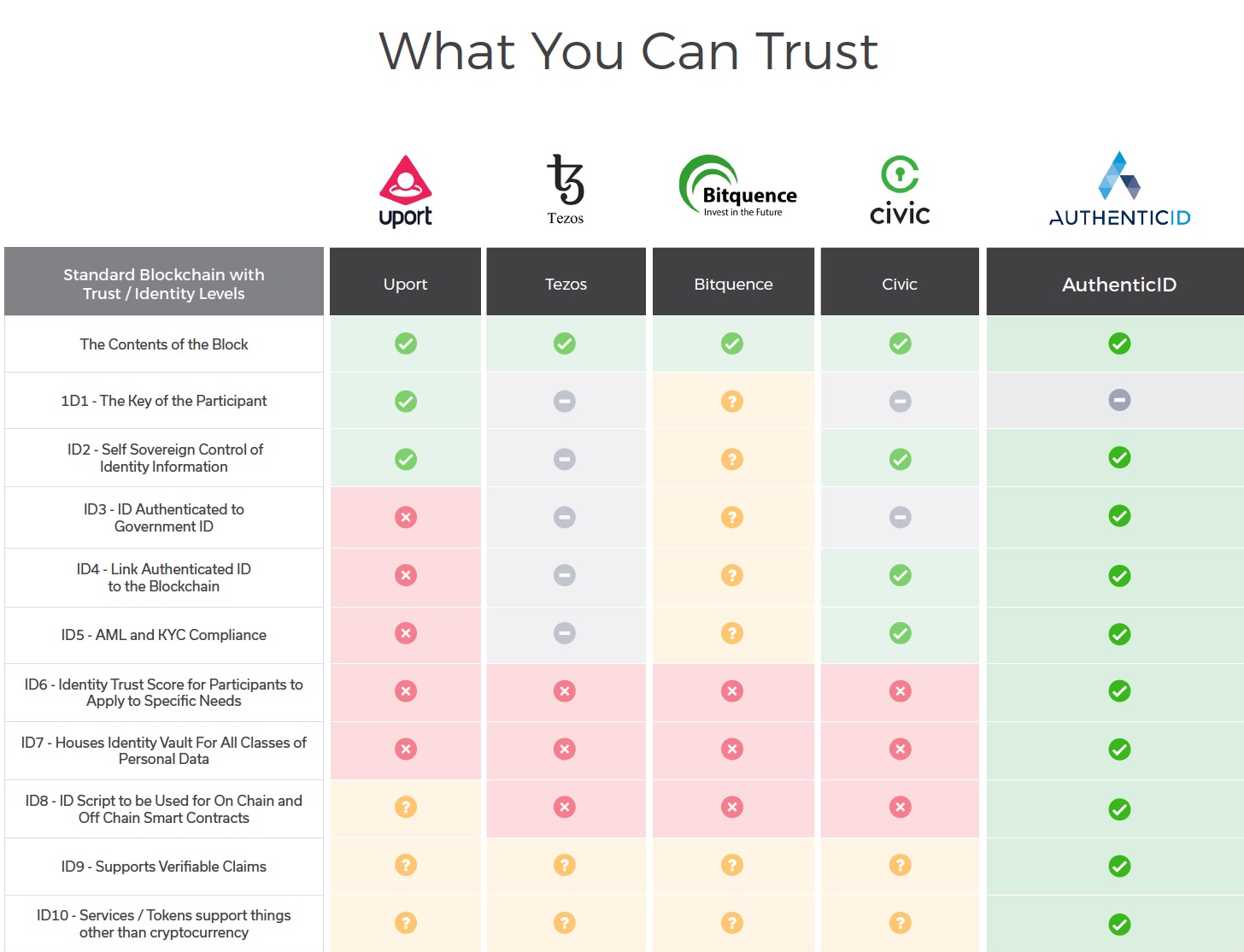With companies already spending tens of billions of dollars authenticating identities for everything from bank transactions to car rentals and peer-to-peer boat sales – off chain, it’s no surprise big companies are seeing the enormity of the opportunity around identity authentication on the blockchain.
It will be interesting to see how blockchain – which is rooted in decentralization, reacts to ID2020. It won’t be surprising to see it be very popular on private blockchains, but for the public blockchains, that may be another matter.
Where it all needs to go is automation of the identity authentication and that will probably come through smart contracts in ethereal and now Tezos. AuthenticID is the best positioned to deliver on this because it supports a multi-dimensional set of requirements and regulations (see graphic) where many others are much more one-dimensional.
Given how huge the server farms of Amazon AWS and Microsoft Azure are, it seems that they could declare all of their servers to be nodes on the blockchain and that would, overnight, change the landscape. That’s very unlikely to happen, but if you are looking at the long term on the blockchain – playing out some of these what if scenarios around what the opportunities and risks are – it seems foolish not to include awareness of this to that list.
Food for thought.

“but if you are looking at the long term on the blockchain”
The long term is the blockchain won’t exist.
With processes used to manage identities becoming more challenging with the introduction of more applications and platforms, there are more data issues arising due to high profile hacks, which are revealing the vulnerabilities of the systems and processes in place.Because blockchain AML technology has the ability to create global digital identities, it alleviates the issue of duplication.